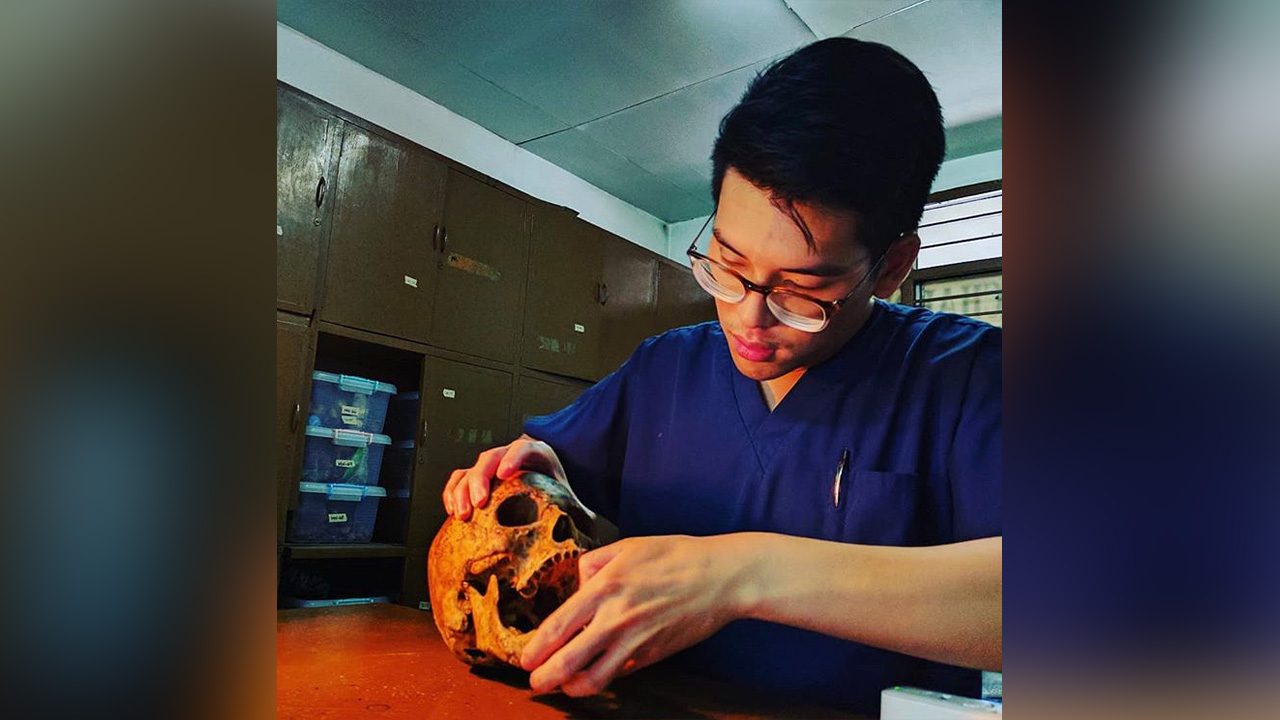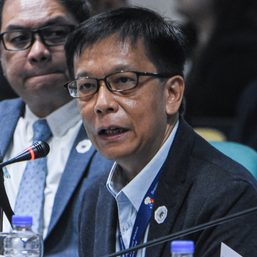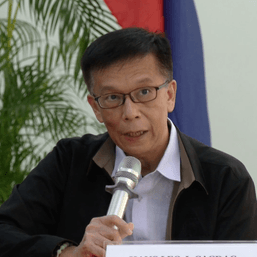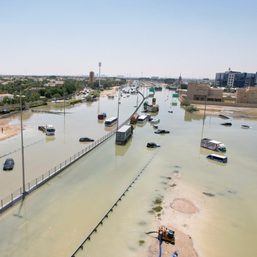SUMMARY
This is AI generated summarization, which may have errors. For context, always refer to the full article.

MANILA, Philippines – “Don’t lose sight of your goals and set them high.”
This is what Filipino forensic anthropologist Matthew Go kept in mind as he undertook the grueling journey towards being granted diplomate status at the American Board of Forensic Anthropology (ABFA) on February 15.
In an email to Rappler on March 7, the ABFA confirmed that Go was the first Filipino diplomate on the board.
Gaining such a prestigious title is no easy feat, even more so having to do it abroad and far away from family.
The field of forensic anthropology deals with studying human anatomy and archaeology to be used in assisting medicolegal investigations. The ABFA is one of only four certification bodies for forensic anthropologists in the world. In its 45-year history, at least 153 people gained diplomate status at the ABFA.
Rappler got a chance to sit down with Go after achieving the milestone in his career. Here is his story.
Discovering forensic anthropology
Go was born and raised in the Philippines, but dreamed of studying abroad. He sent applications to big universities in the country such as the University of the Philippines and the Ateneo de Manila University, but he also tried his luck at universities abroad.
The stars aligned for him when he got accepted at the Simon Fraser University in Canada. Like many Filipino students, Go followed the wishes of his parents when it came to his college degree. His parents wanted him to pursue medicine, so he took up behavioral neuroscience.
After one semester, Go realized he was not fully satisfied with his degree program. He was still interested in human biology, but longed for something more.
“How can I apply biology to something more in the humanitarian sector or sphere – something to do with human rights? That was more exciting to me,” Go said, explaining how he explored forensic anthropology.
Go learned that forensic anthropology expanded the study of human remains into the context of their deaths. If a passerby were to discover human remains, he said, an anthropologist can determine things beyond their height and sex.
“We can analyze gunshot wounds, stab wounds, blunt force trauma, things like that…. And that information can help with whatever investigation needs to be done, like who’s this person; what happened to them? We figure out who that person is; we pursue a case. Does a criminal investigation need to be opened?” Go said.
Forensic anthropologists also help in investigations of mass disasters, airplane crashes, or terrorist bombings – crucial in determining identities of multiple victims that can get mixed up. “An anthropologist can go and sort the remains out into their discrete individuals,” he said.

Going through the eye of the needle
Being awarded the ABFA diplomate status means having exemplary expertise in forensic anthropology, which is why applying for it was no easy feat for Go. To apply, he had to submit case reports, scholarly publications, relevant work experiences, and letters of recommendation – a process that took him more than three months to complete.
For the examination, Go was given a reading list of over 400 references, ranging from two-page articles to an entire textbook. “It was so insurmountable that when I saw it, it was insane,” Go told Rappler.
Aside from the tedious application process, Go also had to face battles of his own. Since he was no longer affiliated with a university, he had difficulty accessing online journals that were part of the reading list. Since it was blocked by a paywall, he had to ask his friends from the university to access journals for him. “I had to do that a hundred times,” shared Go.
Finances also became an issue given that the application process was not cheap. He had to pay for examination fees as well as flights to and from the testing center, accommodation and other miscellaneous expenses, all coming from his own pocket.
It took Go 10 months to finish the application process. Upon receiving a results email, he said he was hesitant to open it, anticipating a failed result. “I was too scared to open it. I forwarded it to a friend. Nag-Facetime kami, and sabi ko open the letter for me (We were on Facetime, and I told them to open the letter for me),” Go said.
Contrary to what he expected, his hard work paid off.
“I feel very validated, na parang Matt 12 years ago was hoping this would come and finally tapos na (the Matt 12 years ago was hoping this would come and finally it did),” he shared.
Paul Gideon Lasco, a Filipino anthropology expert and published author, shared with Rappler that he is extremely proud of Go’s accomplishment. “I hope this certification will empower Matthew to further contribute in promoting forensic anthropology as an important subfield of anthropology in the country,” Lasco said.
Longing for home
Go has constantly longed for Filipino culture after staying abroad for almost nine years for school and work. From the food to seeing his family and friends, it is the reason why Go makes it a point to go home every year, “kahit bumagyo pa (even if there’s a storm),” he added.
He also misses the kaladkarin culture in the Philippines, where he simply asks his friends to go out with him at a moment’s notice. “That’s not really a thing here in the States because everyone’s so busy. In the Philippines, magte-text lang na ‘Uy labas tayo, kain tayo’ (they’ll just text, ‘Hey, let’s go out and eat’). I love that kind of camaraderie that I can’t find in the US,” Go said.
For Filipinos aspiring to make a mark in the international science community, Go shared a piece of wisdom that he lives by, “Don’t lose sight of your goals and set them high.” He said that there are so many opportunities abroad for bright Filipino minds, so they should never stop dreaming of achieving great things.

Need for scientists’ support in the Philippines
Achieving such a prestigious status internationally, Go remained grounded in his Filipino roots, saying that he would love to come back and work in his home country.
“That’s what I set out my hopes and dreams for when I went to forensic anthropology. As a student, my hopes and dreams were to bring it back to the Philippines,” he said.
When asked if this would be anytime soon, he said that the current conditions in the Philippines are not very suitable given that the science industry is not very supported here.
In May 2017, then-senator Paulo Benigno “Bam” Aquino IV said that the Philippines lacked 19,000 scientists to be a significant force in research and development. President Rodrigo Duterte signed into law the Balik Scientist Act in June 2018, providing incentives and assistance to returning Filipino experts, scientists, inventors, and engineers.
Still, some experts find that the Philippines lags behind in supporting its scientists. The Department of Science and Technology suffered an almost P76-million cut from its ambitious P36.269-billion proposed budget for 2021. Then, in 2022, the DOST’s budget was reduced by P919.8 million compared to its budget in 2021.
“But if the conditions were right, I would definitely go back home and contribute and give back,” said Go. – Rappler.com
Angel Ty is a Rappler intern. This article was done under the supervision of Rappler staff and her copy was vetted by editors.
Add a comment
How does this make you feel?





There are no comments yet. Add your comment to start the conversation.